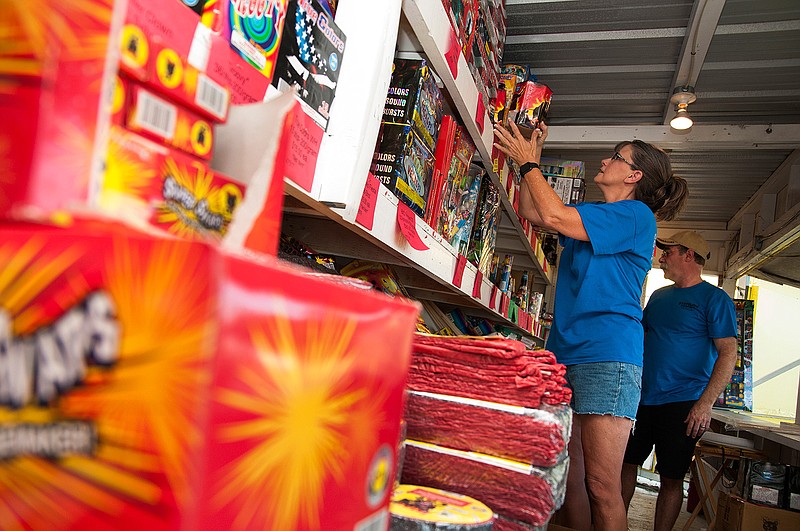Fireworks captivate the imagination of the young and old alike and are a Fourth of July tradition. They also result in thousands of injuries each year.
Facts about fireworks injuries in 2014 from a report by the U.S. Consumer Product Safety Commission
Fireworks were involved in an estimated 10,500 injuries treated in U.S. hospital emergency departments during calendar year 2014. Of the fireworks-related injuries sustained, 74 percent were to males and 26 percent were to females. Children younger that 15 accounted for 35 percent of injuries. Children 5 to 9 had the highest estimated rate of injuries treated at the emergency department. The body parts most often injured were the hands and fingers at 36 percent. The head, face and ears came in second accounting for 19 percent of injuries. Legs were injured 10 percent of the time and arms 5 percent. There is not a statistically significant trend detected in fireworks-related injuries from 1999 to 2014."The most common thing we see are things that blow up in your hand and that's because there's nothing absolutely perfect about the way fireworks are put together," said Dr. Bob Fry, emergency room physician at Wadley Regional Medical Center. "Sometimes fuses are short and sometimes you don't know where you're hitting it, but fireworks can blow up in your hand and cause minor or major injuries."
Following the recommended guidelines would prevent people from being harmed.
"If everyone would use products as the manufacturer states, that would usually limit injuries," said Dr. Matt Young, medical director and physician owner of Texarkana Emergency Center. "You aren't suppose to hold fireworks in your hand, and they're suppose to be used with adult supervision. It's just very important to follow those guidelines These injuries can be devastating if someone loses function of an eye or a hand."
Dr. John Harris, ER physician and assistant director of the ER at CHRISTUS St. Michael Health System said many of the fireworks-related injuries he's treated over the years have been caused by careless use.
"People that throw exploding fireworks I've seen hands literally blown off because they didn't get it out of their hand in time," Harris said. "Other big ones to be concerned about are bottle rockets and Roman candles. I've seen injuries from people who'll hold them in their hands and shoot them at each other. I've also seen someone lose an eye from bending over a firework that didn't go off until he was over it."
Making sure to pop firecrackers in a safe place away from houses and other things that can catch fire is also an important safety tip.
"If you do pop fireworks in the the wrong place, you can cause damage to houses, and if you're out in a field, you can start a fire," Fry said. "The area needs to be properly prepared, and you need to be prepared with water or something else to put a fire out with."
Watching the show from a safe distance is recommended.
"Everybody should be as far away from fireworks as possible. If they fall over, they can shoot somebody and they have a lot of power," Harris said.
Fireworks aren't the only things to watch out for during holiday parties including heat illness and dehydration.
"The temperature will be extremely hot and the humidity is very high," Young said. "Many people aren't going to be acclimated or adjusted to being out in those type of temperatures for hours at a time celebrating with family and friends."
Finding a shady spot to enjoy festivities and drinking plenty of non-alcoholic fluids is recommended. Alcoholic beverages increase the chance of heat illness because it doesn't rehydrate the body like water does.
"For those who want to have alcohol, we just want them to be responsible and realize they need to hydrate. For every alcoholic beverage they have, they need to have a water and usually not more than one alcoholic drink per hour and never drink to excess," Young said.
A few precautions can go a long way to making sure the Fourth of July is memorable for the right reasons.
"We want everybody to enjoy their holiday and stay safe," Harris said. "Of course don't drink and drive and if they have any injuries, remember we're always here 24/7 to help."
Officials also offered tips on keeping animals safe and information about city fireworks laws.

